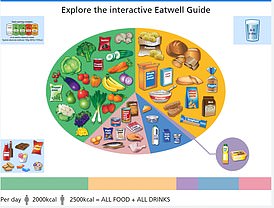Older people ‘who feel tired should be tested for vitamin B12 deficiency’
Older people who feel tired should be tested for vitamin B12 deficiency, health chiefs say
- One in ten people over the age of 75 suffer from vitamin B12 deficiency
- It can lead to anemia, fatigue, blurred vision, balance disorders and delirium
Older people who feel tired or shaky on their feet should be offered a vitamin B12 test, according to new guidelines.
As many as one in ten people over the age of 75 suffer from a vitamin B12 deficiency, which can lead to anemia, fatigue, blurred vision, balance disorders and delirium.
While the vitamin is commonly found in fish, meat, poultry, eggs and dairy products, its absorption can be hindered by certain medications and autoimmune conditions.
But new advice, from the National Institute for Health and Care Excellence (NICE), means up to 46,000 people could benefit from the diagnosis.
As many as one in ten people over the age of 75 suffer from vitamin B12 deficiency, which can lead to anemia, fatigue, blurred vision, balance disorders and delirium
The guideline recommends that if one sign or symptom and one or more risk factors are present, a blood test should be offered.
Risk factors associated with the condition include age, especially people 65 and older, previous digestive system surgery, and certain health conditions such as type 1 diabetes.
The draft guideline, which will now be submitted for public consultation, states that while some people may only need one blood test to diagnose the condition, others may need further tests.
If someone is found to be deficient, NICE recommends B12 tablets or injections – depending on the cause found.
Vitamin B12 helps maintain a healthy nervous system and reduce fatigue. Our body uses the vitamin to make red blood cells, which help the body deliver oxygen to our tissues.
Deficiency is more common in older people because the aging process causes physiological changes that prevent the vitamin from being properly absorbed by the body.
Older people are also at greater risk of developing health problems, such as memory loss and dementia, which can affect their diet and eating habits.
Vegans, who don’t eat meat or dairy products, may also be at greater risk if they don’t take supplements.

